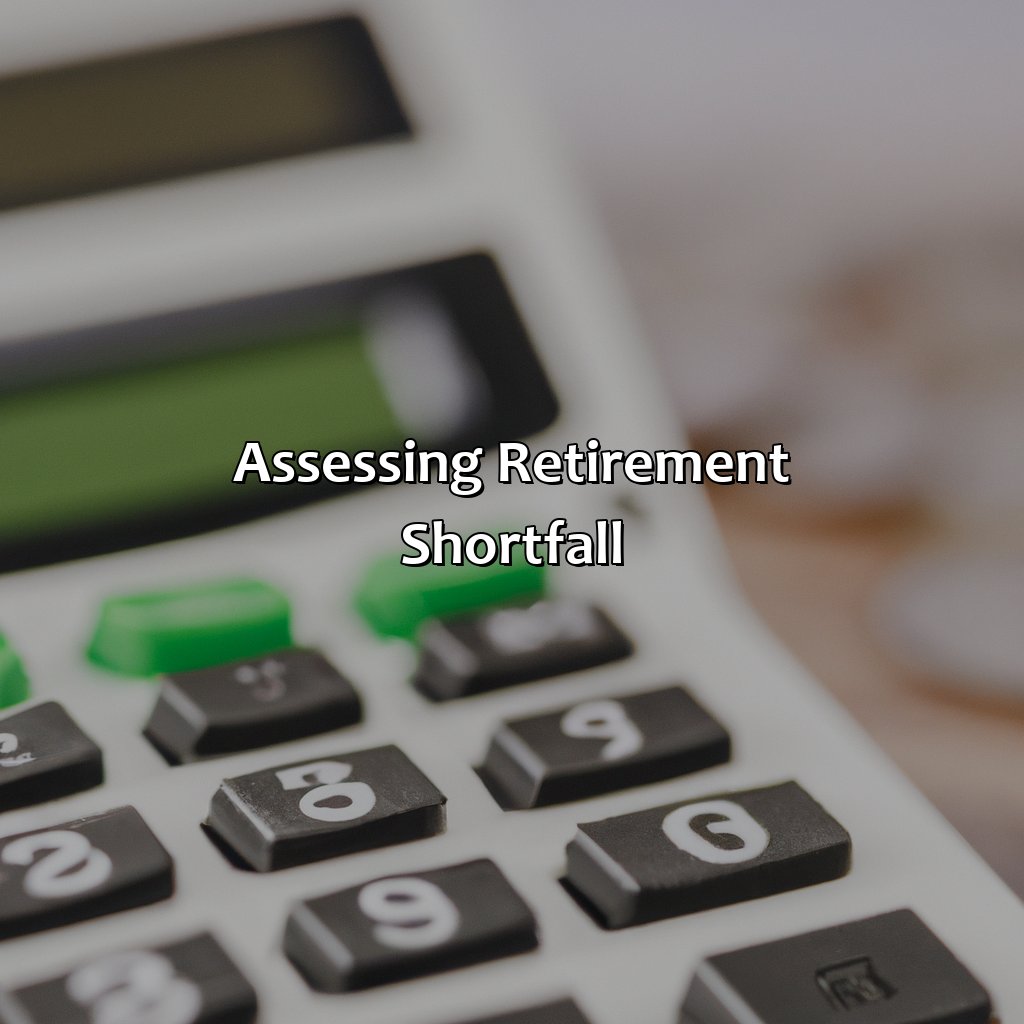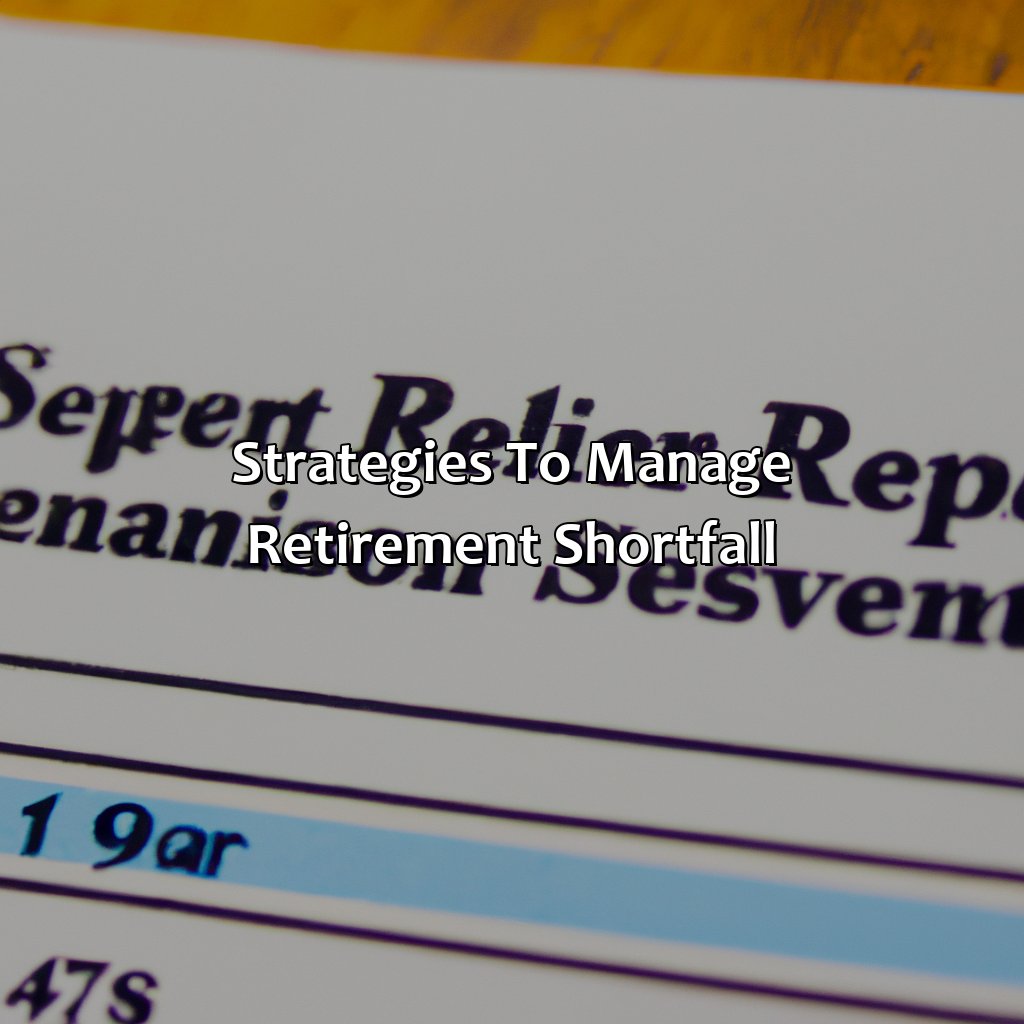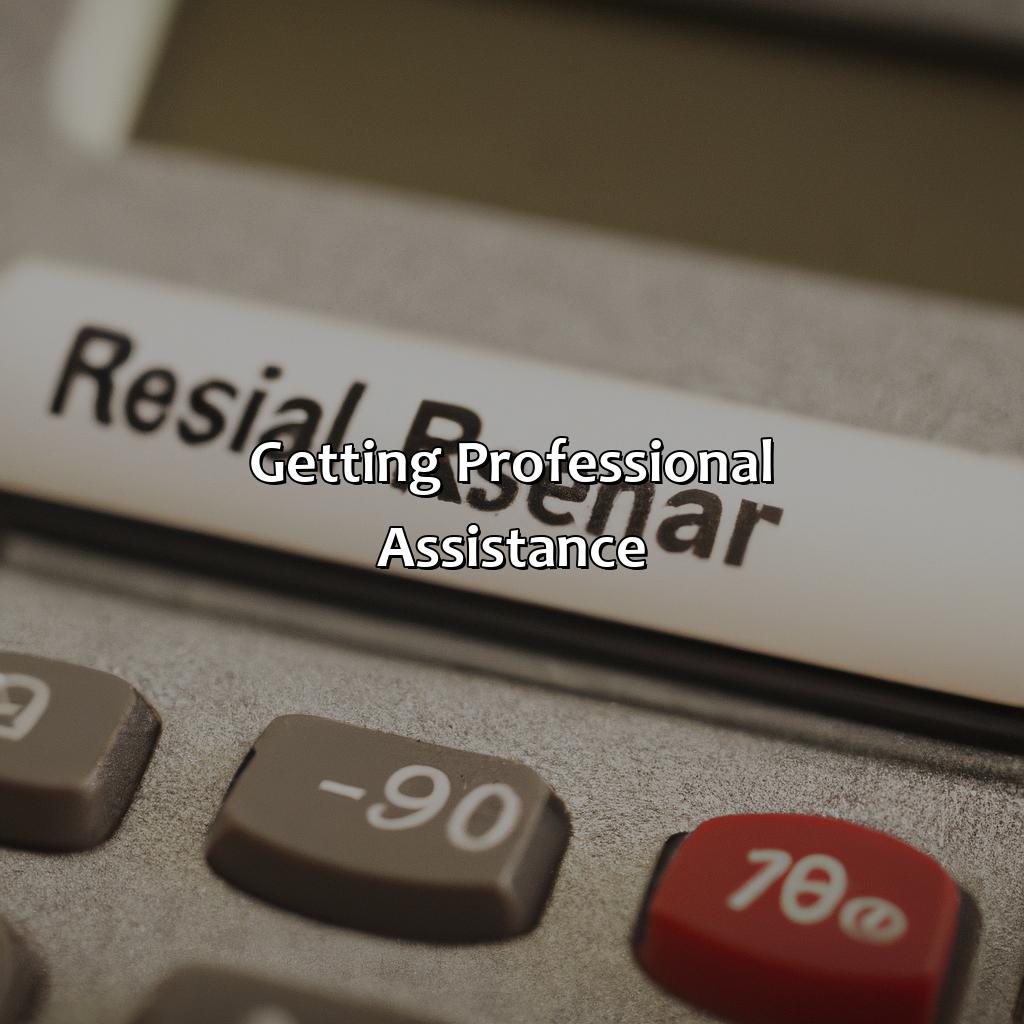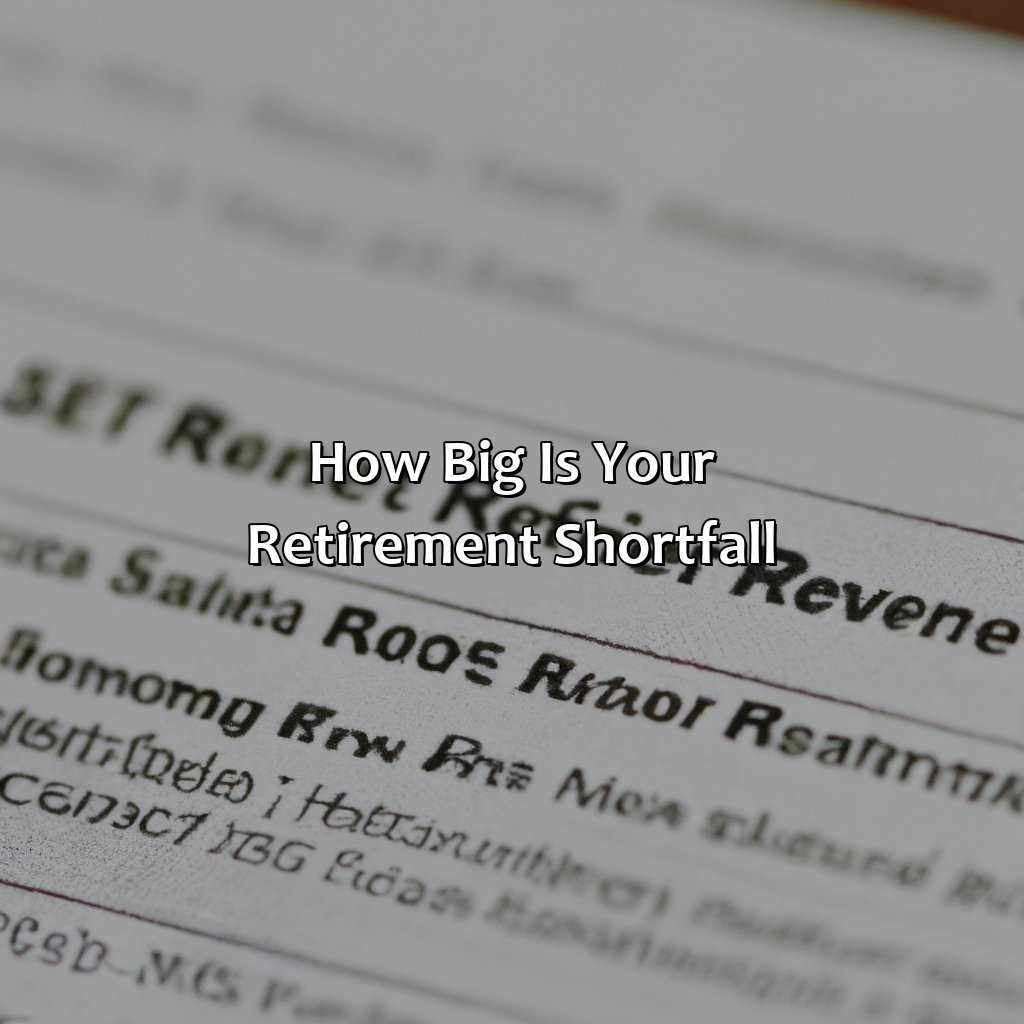How Big Is Your Retirement Shortfall?
Key Takeaway:
- Assessing Retirement Shortfall:
- Estimating your retirement expenses is important to determine how much you need to save. Consider factors like housing, healthcare, and leisure activities, and factor in inflation over time.
- Calculate your retirement income, including social security and pension plans, to get a sense of how much money you will have to work with during retirement.
- Strategies to Manage Retirement Shortfall:
- Saving more for retirement may be necessary if you are behind in your savings. Consider cutting back on expenses and increasing your retirement contributions to make up the shortfall.
- Delaying retirement can also be an effective strategy if you are able and willing to continue working for a few more years. This can give you extra time to save and allow your investments to grow.
- Lowering your retirement expenses, such as downsizing your home or cutting back on non-essential expenses, can also help stretch your retirement savings further.
- Getting Professional Assistance:
- Consulting with a financial advisor can provide valuable guidance and insight on how to manage your retirement savings and income.
- Reviewing and adjusting your retirement plan regularly can help ensure you stay on track to meet your retirement goals.
- Considering other retirement income sources, such as rental income or part-time work during retirement, can also help offset any potential shortfalls in your retirement savings.
Retirement planning can be daunting, but understanding the size of your retirement savings shortfall is the first step to a secure future. You deserve to know if you’re on track with your retirements goals and how to make up any shortfalls. Let’s explore how to calculate your retirement shortfall.
Assessing Retirement Shortfall
It’s important to plan for retirement. To do this, you must know how much money you’ll need to live off of. This section will help you figure out your retirement shortfall. Estimate expenses and calculate income to get an idea of where you stand in meeting your retirement goals.

Image credits: retiregenz.com by Joel Jones
Estimating Your Retirement Expenses
Understanding the Cost of Your Retirement
In order to assess your retirement shortfall realistically, it is crucial to estimate your expected expenses post-retirement accurately. This involves an in-depth analysis of your projected costs, including housing expenses, healthcare, transportation, taxes, and leisure activities.
Estimating Your Future Expenses
Think about how much money you will need to cover your post-retirement expenses. Depending on factors such as geography and lifestyle choices, projected costs may vary significantly. Using a retirement calculator or consulting with a financial advisor can help provide clarity on what to expect in terms of retirement expenditures.
Preparing for Unforeseen Expenses
While some expenses are predictable post-retirement, others are unpredictable. Factors such as inflation and market risk can cause unexpected future expenses. Plan for these by maintaining an emergency fund that contains six months’ worth of living costs.
Historical Insight
Many retirees find themselves surprised by the cost of healthcare after retirement – a cost that was not thoroughly considered in their pre-retirement planning process. In fact, according to a study conducted by Fidelity Investments in 2016, it is estimated that a retired couple would need at least $260k solely for healthcare costs throughout their retirement years.
Get ready to do some serious math, because figuring out your retirement income is like trying to solve a calculus problem with one eye closed.
Calculating Your Retirement Income
Preparing for a comfortable retirement requires adequate planning and a realistic understanding of your future financial needs. You can achieve this by determining how much income you will need during your golden years. This involves calculating your projected expenses, factoring in inflation, and adjusting for potential healthcare costs.
Managing all these variables can be overwhelming, but there are tools available that can help. Many online calculators are designed to provide an estimate of your future retirement income based on the data you enter. This information may include your current savings rate, expected earnings growth rate, retirement age, and life expectancy.
While these tools are not always perfect, they can provide a useful starting point in assessing whether your current savings plan is meeting your long-term retirement goals. It is important to remember that the earlier you start saving for retirement, the easier it will be to build up sufficient funds to afford the lifestyle you want.
Making gradual changes to your spending habits or increasing your contributions to investment accounts over time can make a big difference in the size of your nest egg when you retire. Another helpful strategy is to work with a financial advisor or planner who can assess your unique situation and help identify areas where you may be falling short.
Regardless of how you choose to tackle this issue, it’s essential to take proactive steps now so that you can avoid a potentially large gap between what you’ll need in retirement and what resources will be available at that time. With careful planning and consistent effort towards increasing savings over time, you can work towards achieving a comfortable and worry-free retirement.
Retirement shortfall? Just pretend you’re a millennial and it’ll feel like a rite of passage.
Strategies to Manage Retirement Shortfall
Manage your retirement shortfall with effective strategies. Save more for retirement. Delay retirement. Lower retirement expenses. These strategies can help you overcome the challenge of not having enough money saved. Understand and implement these strategies. Work towards financial security and a comfortable retirement.

Image credits: retiregenz.com by David Washington
Saving More for Retirement
One effective strategy to overcome retirement shortfall is to increase the amount saved for retirement. Boosting your retirement savings can provide a buffer in case of unexpected expenses or longer lifespans. You can aim to save more by setting aside a fixed percentage of your income each month, automating your contributions, and gradually increasing your contributions over time.
Another way to save more is by reducing your expenses and diverting those savings towards retirement. This may require you to rethink your spending habits and prioritize long-term financial security over short-term indulgences. A financial advisor can help in devising an appropriate saving plan.
It’s important to note that saving more may not be feasible for everyone, especially if they are already saving as much as they can. In such cases, alternate strategies like delaying retirement or exploring additional sources of income after retirement might be necessary.
Don’t risk having insufficient funds during retirement – start planning now and seek professional guidance if needed.
Who needs retirement when you can have a second career as a Walmart greeter?
Delaying Retirement
One strategy to counteract a retirement shortfall is delaying the retirement age. By working longer, individuals have increased earning potential, more time to save and less time in retirement. This can reduce the risk of running out of money during retirement and provide an opportunity to catch up on savings.
Furthermore, delaying retirement allows for continued contributions to retirement accounts and Social Security benefits. It also avoids early withdrawal penalties on tax-deferred accounts. However, individuals should be aware of age limits for certain benefits and factor in potential health issues that may arise as they age.
It’s important to note that delaying retirement isn’t always possible or desirable for everyone. Depending on individual circumstances, some may choose instead to focus on cutting expenses or increasing income through part-time work or side hustles.
One suggestion is to create a detailed budget and explore ways to cut costs like downsizing or reducing discretionary spending. Another strategy is investing in higher return assets or seeking professional financial advice.
Regardless of the approach taken, it’s essential to assess your current financial situation regularly, set achievable goals and adjust accordingly. Managing a retirement shortfall requires careful planning and diligence but can lead to a more secure future.
Who needs fancy vacations when you can just lower your retirement expenses and live like a hermit?
Lowering Your Retirement Expenses
Retirement Expense Reduction Tactics
To attain financial stability in retirement, reducing expenses is crucial. By streamlining your expenses, you can stretch your resources further and breathe easy knowing you are better prepared for the future.
First, consider relocating to a smaller home or moving to a less expensive area. This can reduce living expenses while remaining in the same neighborhood or community.
Next, evaluate your healthcare costs by signing up for Medicare supplement plans that offer comprehensive coverage. Additionally, try switching to a monthly subscription service for entertainment instead of paying for cable or satellite TV. As more and more streaming platforms gain popularity, there are more options than ever before.
Lastly, downsize unnecessary assets such as excess cars and property holdings. Find creative ways to sell off high-ticket items to free up cash reserves.
A former colleague I know reduced their monthly budget by cutting out premium supermarket brands and opting for cheaper alternatives. By doing this alone, they were able to save roughly $400 a month and invested that money into their retirement fund instead.
Retirement planning is like trying to solve a Rubik’s cube blindfolded, sometimes you need professional help to get all the colors to align.
Getting Professional Assistance
Seeking professional help for your retirement? Consulting a financial advisor, assessing your retirement plan, and exploring other income sources can be beneficial. Here, we will briefly go through these sub-sections to assist you in managing your retirement finances.

Image credits: retiregenz.com by Yuval Arnold
Consulting with A Financial Advisor
Professional Guidance to Bridge Your Retirement Savings Gaps
Reaching out to a financial professional can help you put together a concrete retirement plan. Financial advisors have the experience, knowledge and tools, helping you carve out a roadmap to meet your retirement needs.
During your search for an advisor, consider their education, certifications and areas of expertise that align with your goals. A thorough advisor will review essential factors like social security and tax laws that impact retirement planning.
An expert can also guide you through the intricacies of investment portfolios that span asset classes such as fixed-income securities and mutual funds. They will help assess varying risk preferences in order to identify robust solutions for saving and investing.
Missed opportunities may cost you dearly in the long run. You deserve confidence in knowing you have taken the necessary steps towards building a secure retirement. Seek assistance from professionals today!
Time to review your retirement plan: because when it comes to your golden years, ‘winging it’ is not a viable strategy.
Reviewing and Adjusting Your Retirement Plan
Evaluating and Modifying Your Retirement Strategy
As you contemplate your retirement plan, it is important to frequently review and adjust it. One way to do this is by taking a systematic approach to evaluating each area of your finances, including expenses and income sources. You can also consider adjusting the age at which you retire, as well as your investment allocation. These modifications can enhance the overall effectiveness of your retirement strategy and improve its feasibility.
Moreover, understanding the extent of your retirement shortfall is critical before making any adjustments. This analysis should include professional guidance from financial experts, who can provide valuable insight into developing an effective retirement strategy. By thoroughly examining their advice, you can make the necessary changes that will put you on track for a comfortable post-working life.
Finally, in order to improve your retirement prospects further, it’s essential to make regular contributions to savings accounts, such as IRAs or 401(k)s. Scheduling automatic withdrawals and increasing deposit amounts over time are two methods that can help assure success. By staying focused on your ultimate goal and being proactive about modifying your financial plans along the way, you’ll be better prepared for whatever lies ahead in retirement.
Considering Other Retirement Income Sources
When exploring strategies to shore up your funds for retirement, it is essential to take an all-encompassing approach. By investigating Other Resources of Retirement Income, you can better plan for the future. Potential sources of supplementary retirement income include social security benefits, pensions, and investments in real estate or mutual funds. These resources can help you bridge the gap between your current savings and the amount needed for a comfortable retirement.
It is crucial to consider how these resources will contribute to your overall financial stability when crafting your retirement strategy. For instance, you may need to adjust your investment portfolio if a significant portion of your income will come from social security benefits or a pension scheme. It would be helpful to acquire accurate information on each option before making any decisions.
Remember that with careful planning and effective utilization of various resources, you can ensure that the amount of money available in retirement meets your needs.
Pro Tip: Don’t hesitate to seek out expert guidance from certified financial planners or trusted family members who have already retired. They can provide insight into the best way to maximize these resources and ensure an enjoyable retirement life.
Some Facts About How Big Is Your Retirement Shortfall?:
- ✅ One-third of Americans have no retirement savings at all. (Source: CNBC)
- ✅ The median retirement savings of all working-age families is only $5,000. (Source: Economic Policy Institute)
- ✅ To maintain their standard of living in retirement, most people will need between 70-90% of their pre-retirement income. (Source: Fidelity Investments)
- ✅ The average retirement savings for Americans aged 55-64 is only $104,000. (Source: CNBC)
- ✅ Social Security provides only around 40% of pre-retirement income for the average worker. (Source: Investopedia)
FAQs about How Big Is Your Retirement Shortfall?
How big is your retirement shortfall?
Retirement shortfall refers to the amount you will fall short in meeting your expenses when you retire. It is crucial to estimate this shortfall as early as possible so that you can start saving enough money to avoid a poor retirement lifestyle. Here are some commonly asked questions and answers on how big your retirement shortfall is:
How is retirement shortfall calculated?
Retirement shortfall is calculated by estimating all the expenses you will have after retirement. These include your monthly expenses, healthcare costs, inflation, taxes, and any other possible expenses that may arise. Then, you need to align these expenses with your sources of income, like social security benefits, pensions, investments, and savings. If your expenses exceed your income by a significant amount, that difference is your retirement shortfall.
What is a good retirement shortfall number?
There is no fixed or good retirement shortfall number. However, most financial advisers suggest that you should be saving enough so that you can replace at least 70% to 80% of your pre-retirement income once you retire. Moreover, your retirement shortfall should be as minimal as possible, indicating that you have planned and saved well for your retirement.
What happens if I ignore my retirement shortfall?
If you ignore your retirement shortfall, you run the risk of outliving your savings. You may also have to cut down significantly on your expenses or rely on others for financial support. Therefore, it is essential to estimate and plan for your retirement shortfall as early as possible to avoid facing financial issues when you retire.
How can I reduce my retirement shortfall?
You can reduce your retirement shortfall by taking multiple steps like increasing your savings, extending your retirement age, choosing a low-cost retirement lifestyle, optimizing your investment portfolio, reducing expenses, and delaying social security benefits. Consult with a financial planner and create a retirement plan that fits your financial goals and retirement expectations.
When should I start worrying about my retirement shortfall?
It is never too early to start worrying about your retirement shortfall. The sooner you start saving and planning for your retirement, the easier it will be to achieve your financial goals. As a rule of thumb, it is suggested that you start planning for your retirement 10-15 years before your retirement date, if not earlier.




